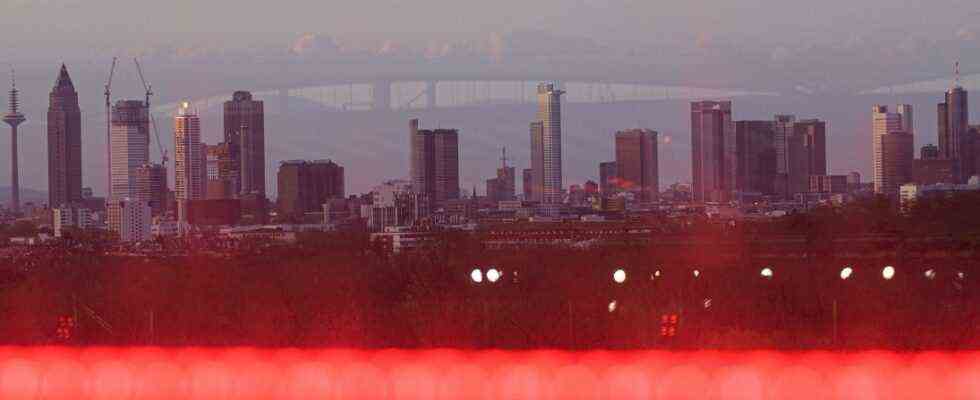The financial investors, ladies and gentlemen, did not pay too much attention to sensitivities: at least not to the fact that the new CEO of Aareal Bank wanted to arrive first: get to know employees, sharpen strategy, rethink everything. What you do in the first hundred days, and that was probably what Jochen Klösges had planned, since mid-September he has been CEO of the aforementioned Aareal Bank.
Instead, Klösges had to do one last week – on his 17th working day Ad hoc announcement issue, and with great implications: the bank, it was said, confirmed “open-ended discussions with a group of financial investors regarding a majority stake”. Specifically, three US private equity firms, all with headquarters in distant New York and Boston, stalked the traditional Aareal Bank with the plan to take over it. If that doesn’t mean anything: Aareal Bank finances real estate worldwide, especially offices and hotels, has 3,000 employees and is one of only three listed German banks. With a balance sheet total of 45 billion euros, it is significantly smaller than Commerzbank or Deutsche Bank, but at least it is.
In any case, the stock exchange considered the offer plausible, the price jumped more than twenty percent on Friday. And the CEO now has to do what the company law prescribes, namely check the advances, if only for the benefit of his shareholders: the investors Centerbridge, Advent and Towerbrook could spend 1.74 billion euros for the bank, according to the first offer. It would be one of the largest bank takeovers in Germany in years.
What does the supervisor think of the “grasshopper model”?
What exactly the three financial investors want remains to be seen. One thing is clear: in order to meet their higher return expectations, they have to come up with something, such as spinning off the bank’s IT subsidiary, saving costs, and managing it better. Even if Aareal Bank emphasizes that it is anything but a crisis, Corona has hit the bank.
A strategy that had been refined in January had fizzled out on the stock market, and the top position had been vacant for almost a year. An activist shareholder had previously tried to stir up the bank management.
But there is also a fundamental question behind this: Is it justifiable that German banks – and thus possibly critical infrastructure – should mostly fall into the hands of foreign investors? After the financial crisis, many asked themselves whether it wasn’t a mistake simply to dump some of the zombie banks of the time with financial investors. The example of the US investor Lone Star is well remembered, who around six years ago simply dropped the Düsselhyp real estate bank after various problems and ceded the remaining risks to the community of private banks. The financial supervisory authority Bafin, which has to approve such takeovers, was therefore skeptical of the “grasshopper model” for a long time, especially when it came to large banks which, in case of doubt, would even have to be absorbed by taxpayers.
On the other hand, a lot has happened since then: The US investment company Cerberus has acquired small stakes in Deutsche Bank and Commerzbank. The Americans were also involved in the takeover of the ailing HSH Nordbank, which today operates under the name Hamburg Commercial Bank. Lone Star has also remained inconspicuous, at least as the owner of the Düsseldorf-based IKB, and a consortium around the investor Apollo recently snatched the Oldenburgische Landesbank. “They have shown that they can do it,” says a bank lobbyist. “Then why shouldn’t you invest in the German banking market?”
How relaxed politics and supervision really are can be seen in the still ailing Commerzbank. The financial investor Cerberus, who holds five percent in the bank, is loudly interested Handelsblatt for the purchase of the state investment. The US investor could imagine taking over the participation of the federal government after the federal election, it is said. Is it true? Not clear. What is striking, however, is how often Commerzbank representatives and high-ranking Cerberus people have met with the responsible State Secretary in the Federal Ministry of Finance in the past few months.
What’s next at Aareal? It is said that a break-up would not be appreciated in Wiesbaden. And in any case, a bank in Germany has never been taken over against the will of management or supervision. Maybe Klösges will still manage his planned 100-day program after all.

